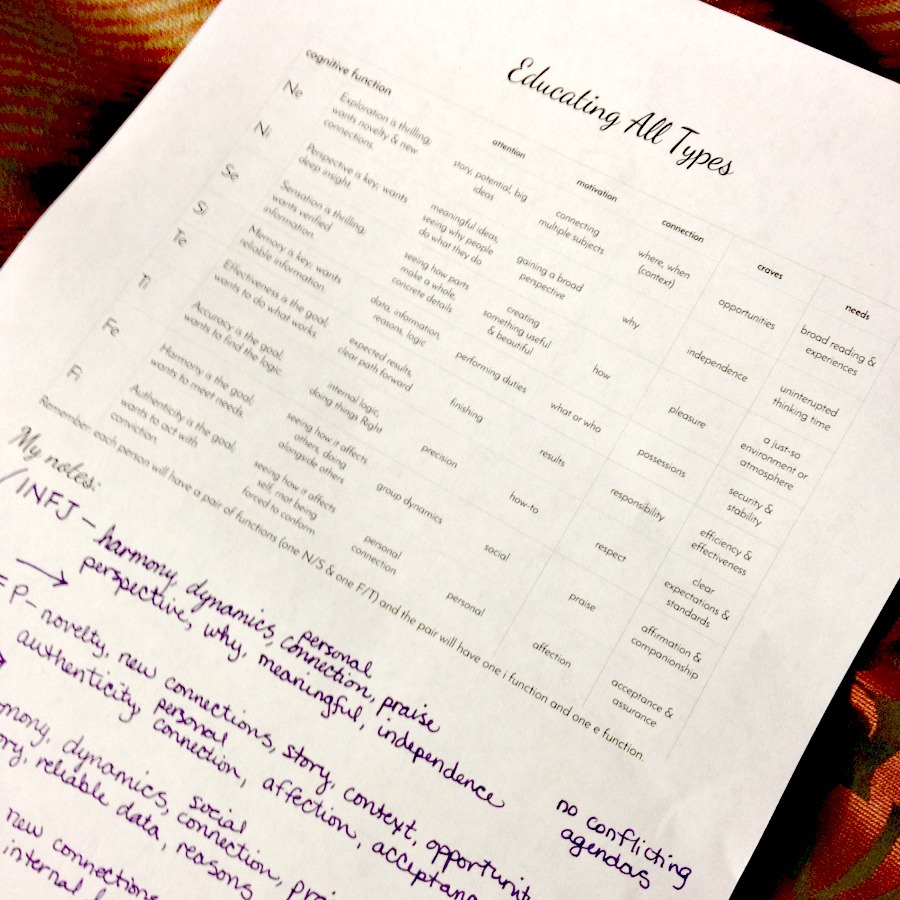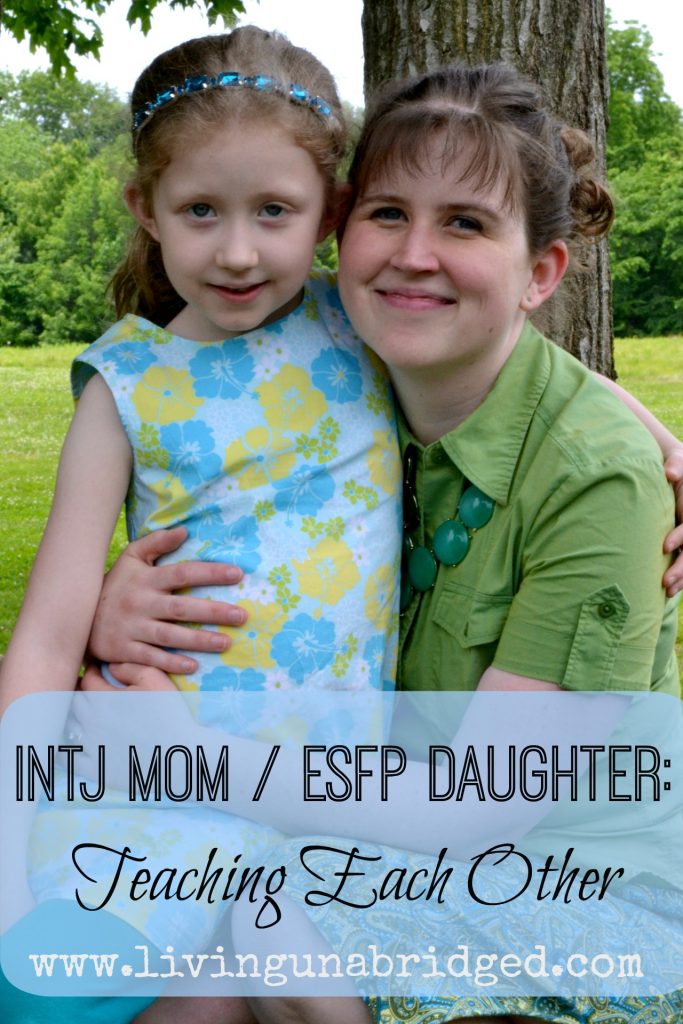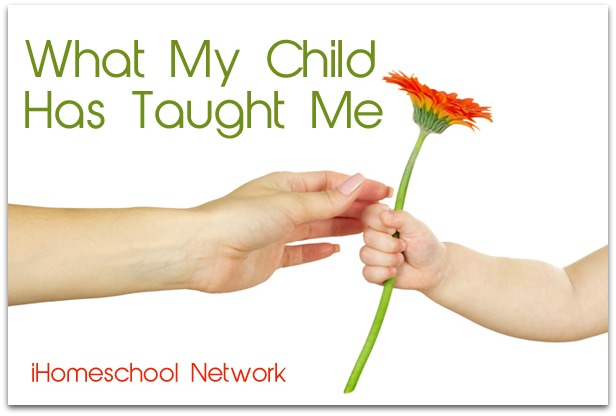An earlier form of this post appeared on my first blog in 2014.
One thing I've learned as a parent: each child is different. I know, not exactly a groundbreaking thought right there. But I have 4 daughters, and while some of their similarities are striking, their differences are what catch my attention.
Two of my daughters are most likely Introverts, as I am. At least one of them may be an INTJ (which would be funny because that's supposedly the rarest type for females. To have two of us in one house would be wild).
My third daughter is not. My study of Myers-Briggs types and the books I've read about parenting by type or finding out your child's type (see end of this post for recommendations) lead me to believe she is an ESFP.
For those of you keeping track, that means she is different from me in every way:
- I'm an Introvert. I crave quiet time and deep conversations on subjects that are meaningful to me. She's an Extrovert. She craves noise and crowds and joyful, exuberant talking about everything.
- I'm Intuitive. I see a big picture and don't, as a general rule, obsess about the details. I have a rich (not to say fantastical) thought life. She's Sensing. She needs repetition and concrete information, step by step guidance through a task. Her pretend play is all based on reality and she prefers audience participation.
- I'm a Thinker. I prefer logic and reason. A good argument invigorates me. I sometimes don't understand what others are feeling. She's Feeling. She has emotions near the surface. Her feelings are hurt easily but she's also sensitive to the feelings and hurts of others. She comforts and encourages. She craves harmony.
- I'm Judging. Routine is my friend. If I say I'll do something, I will come what may. I hate surprises. I'll be on time. Deadlines are inviolable. She's Perceiving. She loves surprises. This daughter forgets what she was doing, while she's doing it. She enjoys new experiences and is always looking out for the next thing.
This might surprise you, but this particular child, different - so different - from me in so many ways, is a joy for me to parent.
Here's why it works for us:
- She shows me a new perspective on the world. Her delight is contagious.
- She's a peacemaker in our sometimes intense household.
- Her compassion for others reminds me to engage my empathy muscle.
Here are a few things I have to remember while parenting this child:
- She's not trying to annoy me when she's right at my elbow, talking a mile a minute. This child craves company, and she processes information externally (that just means she needs to talk things through).
- She is not necessarily being defiant when she neglects a chore or task. Her intentions are good, but she's also easily distracted and forgetful.
- She needs things broken into steps (her "S" vs. my "N"). Telling her "Take care of your laundry" doesn't work. Telling her, "Put your clean shirts away" and then telling her, "Now put away your clean P.Js" does.
- Her multiple outfit changes a day are not purposely wasteful. She's S. She needs new outfits if the temperature changes or she finds out we're going somewhere she didn't expect. Just because I have a fairly typical uniform - and once I'm dressed I don't usually change - doesn't mean she has to.
- Sometimes I need to respond to her feelings with feelings instead of logic. She needs me to empathize, hear her out, kiss the wound, bring the ice pack (even if it doesn't look "that bad" to me), hold her hand, or commiserate about the situation.
- She also needs me to teach her not to be controlled by her emotions. This is a skill she can learn. She needs to understand that always relying on feelings is dangerous and could be construed as manipulative, even if she's not trying to manipulate.
- She needs me to applaud her efforts. Specific praise is always better than "That's nice honey." Gentle suggestions for improvement may be in order, but proceed with caution. "Constructive criticism" will not work.
- I need to explain to her my need (and her sisters' need) for alone time so we can recharge. I need her to know that Daddy and I can talk heatedly about a subject and not be angry, and such discussions definitely do not mean we're upset with her.
INTJ Mom Life
As an INTJ, I crave independence and autonomy. As an INTJ parent I grant as much independence to my children as I can. It took me a long time to realize that this particular child likes me to wash her hair, not because she's incapable, but because she likes my company and how skillfully and gently I can get those suds out of her curly hair.
Even if it turns out that I was wrong about my daughter's exact type, understanding how we're different has helped me be a better parent to all of my children. Each of my children is a blessing, but this particular pairing is a match only God could have made, and I'm thankful every day that He did.
Update: I'm beginning to think my daughter is closer to an ENFP than an ESFP. More research (AKA: raising her to adulthood) required!
Two books that I recommend for parents who want to know more about how personalities interact with parenting:
MotherStyles: Using Personality Type to Discover Your Parenting Strengths
by Janet Penley is a great resource for parents who want to know their own personality and how it affects their parenting choices.
Nurture by Nature: Understand Your Child's Personality Type - And Become a Better Parent
is great for analyzing your child's (or children's) personalities.
Have you noticed your children's personalities? How do their differences or similarities affect your parenting?
P.S. My fellow INTJ mom Mystie has prepared a wonderful resource for teaching to personality styles:






